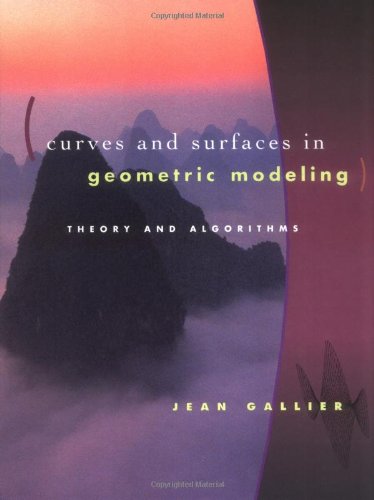
Curves and Surfaces in Geometric Modeling: Theory and Algorithms
by Jean Gallier
Publisher: Morgan Kaufmann 1999
ISBN/ASIN: 1558605991
ISBN-13: 9781558605992
Number of pages: 502
Description:
This book offers both a theoretically unifying understanding of polynomial curves and surfaces and an effective approach to implementation that you can bring to bear on your own work -- whether you are a graduate student, scientist, or practitioner.
Download or read it online for free here:
Download link
(2.6MB, PDF)
Similar books
 Algorithmic Mathematics
Algorithmic Mathematicsby Leonard Soicher, Franco Vivaldi - Queen Mary University of London
This text is a course in mathematical algorithms, intended for second year mathematics students. It introduces the algorithms for computing with integers, polynomials and vector spaces. The course requires no computing experience.
(24394 views)
 Algorithmic Algebra
Algorithmic Algebraby Bhubaneswar Mishra - Courant Institute of Mathematical Sciences
The main purpose of the book is to acquaint advanced undergraduate and graduate students in computer science, engineering and mathematics with the algorithmic ideas in computer algebra so that they could do research in computational algebra.
(23256 views)
 Fractals
Fractals- Wikibooks
The aim of this text is to develop an informal, light introduction to the world of fractal geometry and to inspire further research into the subject, whether your interest is of a pure, applied or even recreational nature.
(10177 views)
 Art Gallery Theorems and Algorithms
Art Gallery Theorems and Algorithmsby Joseph O'Rourke - Oxford University Press
Art gallery theorems and algorithms are so called because they relate to problems involving the visibility of geometrical shapes and their internal surfaces. This book explores generalizations and specializations in these areas.
(21138 views)